In the grand tapestry of human history, ancient Egypt stands out as a beacon of advanced civilization. Renowned for its awe-inspiring pyramids, intricate hieroglyphics, and majestic pharaohs, ancient Egypt was a wellspring of culture, innovation, and ingenuity. Amidst the splendor of this ancient land, one seemingly humble yet indispensable item played a significant role in daily life – soap. Today, we often take soap for granted as a simple cleansing agent, but in ancient Egypt, soap held a deeper significance, embodying concepts of hygiene, beauty, and spiritual purification. The roots of soap-making in ancient Egypt can be traced back to around 2800 BC, during the early dynastic period. The ancient Egyptians had a deep-seated appreciation for cleanliness and personal grooming, viewing it as essential for maintaining physical health and spiritual well-being. Soap, in its rudimentary form, was crafted from a blend of animal and vegetable fats, alkaline salts, and scented oils. The precise methods and ingredients varied based on the resources available in different regions of Egypt, but the basic principle remained the same – to create a substance that could cleanse the body and lift the spirits. The production of soap in ancient Egypt was a labor-intensive process that required skill, patience, and meticulous attention to detail. Artisans known as “soap makers” were highly respected for their expertise in blending the raw materials into a smooth, fragrant paste. Animal fats such as tallow and oils from plants like olive, palm, and castor were melted together in large cauldrons over open fires. To this mixture, alkaline salts derived from the ashes of burnt plants, such as soda ash or potash, were added to catalyze the saponification process.

.
 As the concoction simmered and thickened, fragrant oils extracted from local flowers, herbs, and resins were infused to impart a delightful aroma to the soap. Some popular scents included lavender, rose, frankincense, and myrrh, which not only masked unpleasant odors but also added a touch of luxury to the bathing experience. The finished soap paste was then poured into molds, often intricately carved with decorative motifs or engraved with protective symbols, reflecting the Egyptians’ belief in the magical properties of certain scents and designs. The use of soap in ancient Egypt extended beyond mere hygiene; it was intertwined with cultural practices, religious rituals, and social norms. Bathing held a sacred significance in Egyptian society, symbolizing purification of the body, mind, and soul. The ancient Egyptians believed that regular bathing with soap not only cleansed the physical body but also cleansed the spirit, washing away impurities and negative energies. As such, soap was used not only for personal grooming but also in religious ceremonies, funerary rites, and medical treatments. The royal tombs and temples of ancient Egypt bear witness to the importance of soap in the afterlife. Elaborate burial chambers, such as that of King Tutankhamun, contained jars and vessels filled with perfumed oils, unguents, and scented soaps, meant to accompany the deceased on their journey to the underworld. The belief in the transformative power of soap to purify and protect the soul in this life and the next was deeply ingrained in Egyptian culture, shaping their daily routines and spiritual beliefs. In addition to its spiritual connotations, soap played a practical role in maintaining personal hygiene and grooming standards in ancient Egypt. The warm climate, proximity to the Nile River, and bustling urban centers made cleanliness a paramount concern for both the elite and commoners. Soap was used not only for bathing but also for washing clothes, linens, and household items, ensuring a clean and pleasant living environment. The ancient Egyptians took pride in their appearance and grooming habits, using scented soaps, oils, and cosmetics to enhance their beauty and allure. Both men and women indulged in elaborate beauty rituals, including hair styling, skincare, and perfuming, with scented soaps playing a central role in these practices.
As the concoction simmered and thickened, fragrant oils extracted from local flowers, herbs, and resins were infused to impart a delightful aroma to the soap. Some popular scents included lavender, rose, frankincense, and myrrh, which not only masked unpleasant odors but also added a touch of luxury to the bathing experience. The finished soap paste was then poured into molds, often intricately carved with decorative motifs or engraved with protective symbols, reflecting the Egyptians’ belief in the magical properties of certain scents and designs. The use of soap in ancient Egypt extended beyond mere hygiene; it was intertwined with cultural practices, religious rituals, and social norms. Bathing held a sacred significance in Egyptian society, symbolizing purification of the body, mind, and soul. The ancient Egyptians believed that regular bathing with soap not only cleansed the physical body but also cleansed the spirit, washing away impurities and negative energies. As such, soap was used not only for personal grooming but also in religious ceremonies, funerary rites, and medical treatments. The royal tombs and temples of ancient Egypt bear witness to the importance of soap in the afterlife. Elaborate burial chambers, such as that of King Tutankhamun, contained jars and vessels filled with perfumed oils, unguents, and scented soaps, meant to accompany the deceased on their journey to the underworld. The belief in the transformative power of soap to purify and protect the soul in this life and the next was deeply ingrained in Egyptian culture, shaping their daily routines and spiritual beliefs. In addition to its spiritual connotations, soap played a practical role in maintaining personal hygiene and grooming standards in ancient Egypt. The warm climate, proximity to the Nile River, and bustling urban centers made cleanliness a paramount concern for both the elite and commoners. Soap was used not only for bathing but also for washing clothes, linens, and household items, ensuring a clean and pleasant living environment. The ancient Egyptians took pride in their appearance and grooming habits, using scented soaps, oils, and cosmetics to enhance their beauty and allure. Both men and women indulged in elaborate beauty rituals, including hair styling, skincare, and perfuming, with scented soaps playing a central role in these practices.
..
 The use of soap was not just a functional necessity but also a sensory pleasure, invoking feelings of relaxation, rejuvenation, and self-care. The legacy of soap-making in ancient Egypt endures to this day, influencing modern practices and products in the realms of cosmetics, perfumery, and skincare. The traditional methods and ingredients employed by the ancient Egyptians have inspired contemporary artisans and manufacturers to create natural, artisanal soaps that harness the power of botanicals, essential oils, and time-honored techniques. The allure of ancient Egyptian soap lies not only in its cleansing properties but also in its connection to a bygone era of mystique, magic, and marvel. As we marvel at the wonders of ancient Egypt, let us not forget the humble yet potent role that soap played in shaping the lives, beliefs, and customs of this extraordinary civilization. From the bustling markets of Thebes to the grand palaces of Memphis, the scent of fragrant soap wafted through the air, carrying with it the echoes of a bygone age of opulence and elegance. In the annals of history, let us remember the legacy of soap in ancient Egypt, a testament to humanity’s eternal quest for beauty, purity, and transcendence. The allure of ancient Egyptian soap transcends time and space, beckoning us to delve deeper into its mysteries and marvels. The ritual of soap-making in ancient Egypt was not merely a mundane task but a sacred art, passed down through generations and imbued with rich symbolism and significance. As we gaze upon the intricate carvings of soap molds and inhale the lingering scent of perfumed oils, we are transported back to a time when bathing was not just a physical act but a spiritual experience. In the bustling marketplaces of ancient Egypt, merchants traded not only in goods but also in stories, myths, and legends. The soap makers, with their deft hands and keen senses, were revered for their ability to transform simple ingredients into vessels of beauty and well-being. The art of soap-making was shrouded in mystery and magic, with each batch of soap carrying the hopes, dreams, and desires of those who crafted it. From the fragrant oils of roses to the exotic resins of myrrh, the scents of ancient Egyptian soap were as diverse and intricate as the land itself. Each ingredient was carefully chosen for its therapeutic properties, aesthetic appeal, and spiritual resonance. The ancient Egyptians believed that specific scents could ward off evil spirits, attract blessings, and invoke the gods’ favor, infusing their soap with a potent blend of artistry and alchemy.
The use of soap was not just a functional necessity but also a sensory pleasure, invoking feelings of relaxation, rejuvenation, and self-care. The legacy of soap-making in ancient Egypt endures to this day, influencing modern practices and products in the realms of cosmetics, perfumery, and skincare. The traditional methods and ingredients employed by the ancient Egyptians have inspired contemporary artisans and manufacturers to create natural, artisanal soaps that harness the power of botanicals, essential oils, and time-honored techniques. The allure of ancient Egyptian soap lies not only in its cleansing properties but also in its connection to a bygone era of mystique, magic, and marvel. As we marvel at the wonders of ancient Egypt, let us not forget the humble yet potent role that soap played in shaping the lives, beliefs, and customs of this extraordinary civilization. From the bustling markets of Thebes to the grand palaces of Memphis, the scent of fragrant soap wafted through the air, carrying with it the echoes of a bygone age of opulence and elegance. In the annals of history, let us remember the legacy of soap in ancient Egypt, a testament to humanity’s eternal quest for beauty, purity, and transcendence. The allure of ancient Egyptian soap transcends time and space, beckoning us to delve deeper into its mysteries and marvels. The ritual of soap-making in ancient Egypt was not merely a mundane task but a sacred art, passed down through generations and imbued with rich symbolism and significance. As we gaze upon the intricate carvings of soap molds and inhale the lingering scent of perfumed oils, we are transported back to a time when bathing was not just a physical act but a spiritual experience. In the bustling marketplaces of ancient Egypt, merchants traded not only in goods but also in stories, myths, and legends. The soap makers, with their deft hands and keen senses, were revered for their ability to transform simple ingredients into vessels of beauty and well-being. The art of soap-making was shrouded in mystery and magic, with each batch of soap carrying the hopes, dreams, and desires of those who crafted it. From the fragrant oils of roses to the exotic resins of myrrh, the scents of ancient Egyptian soap were as diverse and intricate as the land itself. Each ingredient was carefully chosen for its therapeutic properties, aesthetic appeal, and spiritual resonance. The ancient Egyptians believed that specific scents could ward off evil spirits, attract blessings, and invoke the gods’ favor, infusing their soap with a potent blend of artistry and alchemy.
…
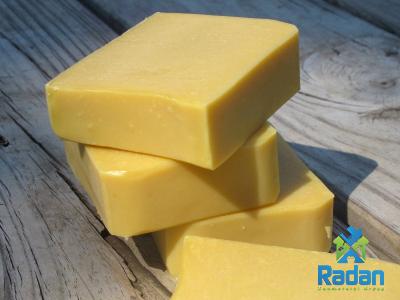 The act of bathing in ancient Egypt was a sacred rite, performed with reverence and intention. The warm waters of the Nile served as a natural source of purification, while the scented soaps and oils enhanced the bathing experience, turning it into a sensory delight. As the ancient Egyptians lathered themselves with soap, they cleansed not only their bodies but also their minds and souls, seeking harmony and balance in the rhythm of daily life. In the royal courts of ancient Egypt, soap took on a luxurious aspect, fit for kings and queens. The pharaohs and their consorts indulged in lavish beauty treatments, including massages, exfoliations, and perfuming, all enhanced by the use of fragrant soaps and oils. The royal bathhouses, adorned with precious jewels and fine linens, became sanctuaries of relaxation and rejuvenation, where the stresses of the world melted away under the gentle caress of scented water and soap. Beyond the confines of the palace walls, ordinary Egyptians also valued the ritual of bathing and grooming as a form of self-care and social bonding. Families would gather at communal baths to cleanse themselves, share stories, and strengthen their bonds of kinship. Soap became a symbol of unity and community, connecting individuals across classes and creeds in a shared pursuit of cleanliness and well-being. The legacy of soap-making in ancient Egypt lives on in the modern world, shaping our understanding of beauty, hygiene, and self-care. The principles of natural ingredients, aromatic scents, and holistic wellness that guided ancient Egyptian soap makers continue to inspire contemporary artisans and consumers in their quest for sustainable, ethical products. The revival of traditional soap-making techniques, such as cold-process and hot-process methods, reflects a growing appreciation for the artistry and craftsmanship inherent in this ancient practice. As we reflect on the profound impact that soap had on ancient Egyptian society, let us rekindle our appreciation for the simple yet profound act of cleansing. In the lather of a fragrant bar of soap, we can trace the echoes of a civilization that valued purity, beauty, and harmony with the natural world. Let us honor the legacy of soap in ancient Egypt by embracing its teachings of self-care, ritual, and mindfulness in our daily lives, weaving a tapestry of connection that spans the ages and unites us in our shared humanity.
The act of bathing in ancient Egypt was a sacred rite, performed with reverence and intention. The warm waters of the Nile served as a natural source of purification, while the scented soaps and oils enhanced the bathing experience, turning it into a sensory delight. As the ancient Egyptians lathered themselves with soap, they cleansed not only their bodies but also their minds and souls, seeking harmony and balance in the rhythm of daily life. In the royal courts of ancient Egypt, soap took on a luxurious aspect, fit for kings and queens. The pharaohs and their consorts indulged in lavish beauty treatments, including massages, exfoliations, and perfuming, all enhanced by the use of fragrant soaps and oils. The royal bathhouses, adorned with precious jewels and fine linens, became sanctuaries of relaxation and rejuvenation, where the stresses of the world melted away under the gentle caress of scented water and soap. Beyond the confines of the palace walls, ordinary Egyptians also valued the ritual of bathing and grooming as a form of self-care and social bonding. Families would gather at communal baths to cleanse themselves, share stories, and strengthen their bonds of kinship. Soap became a symbol of unity and community, connecting individuals across classes and creeds in a shared pursuit of cleanliness and well-being. The legacy of soap-making in ancient Egypt lives on in the modern world, shaping our understanding of beauty, hygiene, and self-care. The principles of natural ingredients, aromatic scents, and holistic wellness that guided ancient Egyptian soap makers continue to inspire contemporary artisans and consumers in their quest for sustainable, ethical products. The revival of traditional soap-making techniques, such as cold-process and hot-process methods, reflects a growing appreciation for the artistry and craftsmanship inherent in this ancient practice. As we reflect on the profound impact that soap had on ancient Egyptian society, let us rekindle our appreciation for the simple yet profound act of cleansing. In the lather of a fragrant bar of soap, we can trace the echoes of a civilization that valued purity, beauty, and harmony with the natural world. Let us honor the legacy of soap in ancient Egypt by embracing its teachings of self-care, ritual, and mindfulness in our daily lives, weaving a tapestry of connection that spans the ages and unites us in our shared humanity.
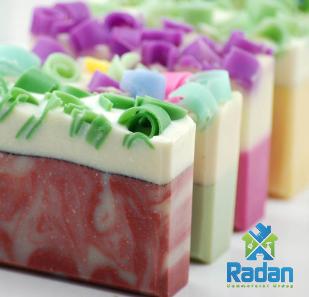
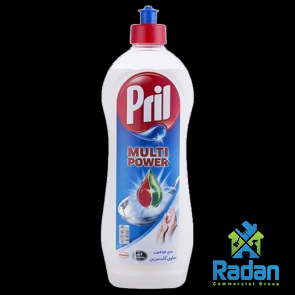
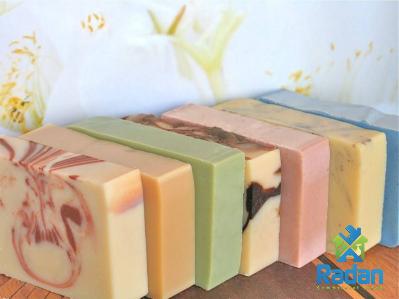
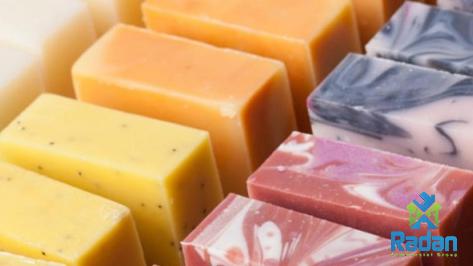
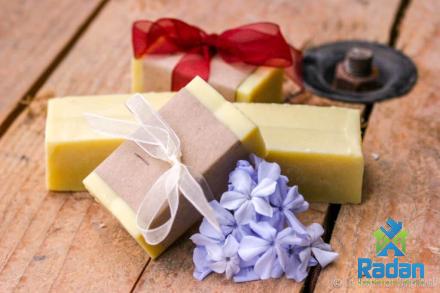

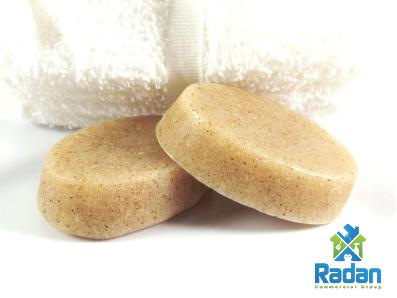
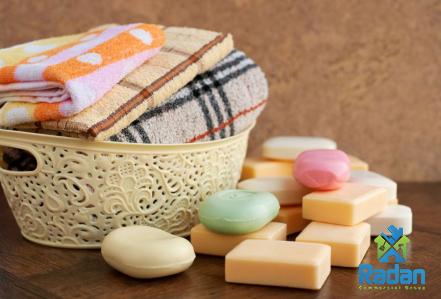
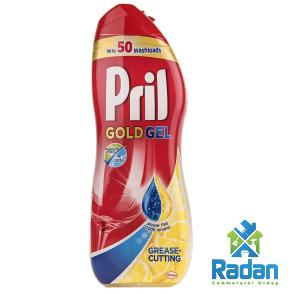
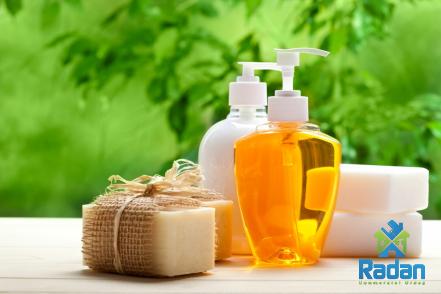
Your comment submitted.